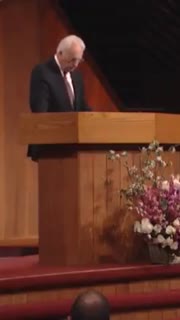Justification by Faith: The Heart of Salvation
Summary
### Summary
In our exploration of Romans chapters 3 through 5, we delve into the heart of Paul's epistle, focusing on the profound doctrine of justification by faith. Paul emphasizes that righteousness from God is revealed apart from the Law and is accessible to all who believe in Jesus Christ. This righteousness is a gift of grace, not earned by works, but granted through faith in Christ's redemptive work. Paul uses Abraham as a prime example to illustrate that salvation has always been by faith and not by works or rituals. Abraham was declared righteous before he was circumcised, demonstrating that rituals like circumcision do not confer righteousness but are signs pointing to a deeper spiritual reality.
Paul addresses the misconception that religious rites, such as circumcision, can secure salvation. He argues that these rites are merely symbols and do not have the power to save. This is evident in the Jewish belief that circumcision was essential for salvation, a belief Paul refutes by showing that Abraham was justified by faith long before he was circumcised. This principle extends to all forms of ritualistic salvation, including modern practices like infant baptism or the Eucharist in Catholicism, which are often mistakenly believed to confer grace and salvation.
Paul's message is clear: salvation is by grace through faith alone. Rituals and ceremonies, while significant as signs, do not have the power to save. They point to the need for a deeper, spiritual transformation—a circumcision of the heart. This truth is foundational to the gospel and underscores the futility of relying on human efforts or religious rites for salvation. Instead, we are called to trust wholly in God's grace, as exemplified by Abraham, the father of all who believe.
### Key Takeaways
1. Justification by Faith Alone: Paul emphasizes that righteousness from God is revealed apart from the Law and is accessible to all who believe in Jesus Christ. This righteousness is a gift of grace, not earned by works, but granted through faith in Christ's redemptive work. This foundational truth underscores the futility of relying on human efforts for salvation. [01:23]
2. Abraham as an Example: Abraham was declared righteous before he was circumcised, demonstrating that rituals like circumcision do not confer righteousness but are signs pointing to a deeper spiritual reality. This example shows that salvation has always been by faith and not by works or rituals, making Abraham the father of all who believe. [05:03]
3. The Futility of Ritualistic Salvation: Paul refutes the belief that religious rites, such as circumcision, can secure salvation. He argues that these rites are merely symbols and do not have the power to save. This principle extends to modern practices like infant baptism or the Eucharist, which are often mistakenly believed to confer grace and salvation. [16:13]
4. Circumcision of the Heart: Rituals and ceremonies, while significant as signs, point to the need for a deeper, spiritual transformation—a circumcision of the heart. This spiritual circumcision signifies the need for inner cleansing and transformation, which is achieved through faith in Christ. [39:21]
5. Salvation by Grace Through Faith: The core message is that salvation is by grace through faith alone. Rituals and ceremonies do not have the power to save; they are signs that point to the need for faith in Christ. This truth is foundational to the gospel and calls us to trust wholly in God's grace, as exemplified by Abraham. [45:30]
### YouTube Chapters
[0:00] - Welcome
[01:23] - Justification by Faith
[05:03] - Abraham's Example
[16:13] - The Futility of Ritualistic Salvation
[39:21] - Circumcision of the Heart
[45:30] - Salvation by Grace Through Faith
[49:16] - Closing Prayer
Study Guide
### Bible Study Discussion Guide
#### Bible Reading
1. Romans 3:21-25
2. Romans 4:1-5
3. Romans 4:9-12
#### Observation Questions
1. According to Romans 3:21-25, how is the righteousness of God revealed, and who is it accessible to? [01:23]
2. In Romans 4:1-5, what does Paul use Abraham to illustrate about faith and works? [05:03]
3. How does Paul address the misconception about circumcision and salvation in Romans 4:9-12? [32:22]
#### Interpretation Questions
1. What does it mean that righteousness is a gift of grace and not earned by works, as stated in Romans 3:24? How does this challenge common religious practices? [01:23]
2. How does Abraham's example in Romans 4:1-5 demonstrate that salvation has always been by faith and not by works or rituals? [05:03]
3. Why does Paul argue that rituals like circumcision are merely symbols and do not have the power to save, according to Romans 4:9-12? How does this apply to modern religious practices? [32:22]
#### Application Questions
1. Reflect on your own faith journey. Have you ever relied on religious rituals or ceremonies for your sense of salvation? How does Paul's teaching in Romans 3:21-25 challenge that reliance? [01:23]
2. Abraham was declared righteous before he was circumcised, showing that faith precedes rituals. How can you ensure that your faith is genuine and not just a formality? [05:03]
3. Paul emphasizes the futility of ritualistic salvation. Are there any modern practices in your faith community that might be mistakenly believed to confer grace and salvation? How can you address these misconceptions? [16:13]
4. The concept of "circumcision of the heart" points to a deeper spiritual transformation. What steps can you take to focus more on inner spiritual growth rather than outward rituals? [39:21]
5. Salvation by grace through faith alone is a foundational truth of the gospel. How can you better communicate this truth to others who might be relying on rituals for their salvation? [45:30]
6. Think about a time when you participated in a religious ceremony (e.g., baptism, communion). How did it impact your faith? Did it point you to a deeper spiritual reality, as Paul suggests it should? [40:27]
7. How can you cultivate a heart that is truly circumcised, focusing on spiritual transformation rather than external rituals? What practical steps can you take this week to deepen your faith? [41:21]
Devotional
Day 1: Righteousness Revealed Apart from the Law
Description: Paul emphasizes that righteousness from God is revealed apart from the Law and is accessible to all who believe in Jesus Christ. This righteousness is a gift of grace, not earned by works, but granted through faith in Christ's redemptive work. This foundational truth underscores the futility of relying on human efforts for salvation. The Law serves to show us our need for a Savior, but it is through faith in Jesus that we receive the righteousness of God. This truth liberates us from the burden of trying to earn our way to God and invites us to rest in His grace. [01:23]
Romans 3:21-22 (ESV): "But now the righteousness of God has been manifested apart from the law, although the Law and the Prophets bear witness to it—the righteousness of God through faith in Jesus Christ for all who believe. For there is no distinction."
Reflection: In what areas of your life are you still trying to earn God's favor? How can you shift your focus to trusting in His grace instead?
Day 2: Abraham's Faith Before Circumcision
Description: Abraham was declared righteous before he was circumcised, demonstrating that rituals like circumcision do not confer righteousness but are signs pointing to a deeper spiritual reality. This example shows that salvation has always been by faith and not by works or rituals, making Abraham the father of all who believe. Abraham's faith was credited to him as righteousness, and this occurred before any religious rites were performed. This teaches us that our relationship with God is based on faith and not on external rituals or ceremonies. [05:03]
Romans 4:9-11 (ESV): "Is this blessing then only for the circumcised, or also for the uncircumcised? For we say that faith was counted to Abraham as righteousness. How then was it counted to him? Was it before or after he had been circumcised? It was not after, but before he was circumcised. He received the sign of circumcision as a seal of the righteousness that he had by faith while he was still uncircumcised."
Reflection: Are there any religious rituals or practices you rely on for your sense of righteousness? How can you refocus on faith in Christ alone?
Day 3: The Futility of Ritualistic Salvation
Description: Paul refutes the belief that religious rites, such as circumcision, can secure salvation. He argues that these rites are merely symbols and do not have the power to save. This principle extends to modern practices like infant baptism or the Eucharist, which are often mistakenly believed to confer grace and salvation. These rituals are important as signs and symbols, but they do not replace the need for genuine faith in Jesus Christ. Salvation is a matter of the heart and is received through faith, not through the performance of religious rituals. [16:13]
Galatians 5:6 (ESV): "For in Christ Jesus neither circumcision nor uncircumcision counts for anything, but only faith working through love."
Reflection: Reflect on any religious practices you participate in. Do you see them as symbols of your faith, or do you sometimes rely on them for your salvation? How can you ensure your faith is in Christ alone?
Day 4: Circumcision of the Heart
Description: Rituals and ceremonies, while significant as signs, point to the need for a deeper, spiritual transformation—a circumcision of the heart. This spiritual circumcision signifies the need for inner cleansing and transformation, which is achieved through faith in Christ. It is not the external act that matters, but the internal change that God brings about in our hearts. This transformation is a work of the Holy Spirit and is evidenced by a life that reflects God's love and righteousness. [39:21]
Deuteronomy 30:6 (ESV): "And the Lord your God will circumcise your heart and the heart of your offspring, so that you will love the Lord your God with all your heart and with all your soul, that you may live."
Reflection: In what ways do you need a deeper spiritual transformation? Ask God to circumcise your heart and bring about true change from within.
Day 5: Salvation by Grace Through Faith
Description: The core message is that salvation is by grace through faith alone. Rituals and ceremonies do not have the power to save; they are signs that point to the need for faith in Christ. This truth is foundational to the gospel and calls us to trust wholly in God's grace, as exemplified by Abraham. We are invited to rest in the assurance that our salvation is secure in Christ, not because of what we do, but because of what He has done for us. This liberating truth frees us from the burden of trying to earn our salvation and allows us to live in the joy and freedom of God's grace. [45:30]
Ephesians 2:8-9 (ESV): "For by grace you have been saved through faith. And this is not your own doing; it is the gift of God, not a result of works, so that no one may boast."
Reflection: How does understanding that salvation is by grace through faith alone change the way you live your daily life? How can you live more fully in the freedom of God's grace today?
Quotes
### Quotes for Outreach
1. "How does a person get on the right side of God? How does a person escape divine judgment and enter into divine blessing? All religions offer some formula, some means supposedly to make that happen and of course none of them can apart from the true gospel of Jesus Christ. Here we find that the only way that a person can be made right with God is apart from works, apart from anything that person does, simply through faith." [02:46] (32 seconds)
2. "Salvation comes to those who recognize their ungodliness. That is the difference in the story of the prodigal son and his brother and the loving father. The one who received the robe which could be an emblem of righteousness was the one who recognized his wretchedness. The older brother who had no sense of his own sinfulness received no such gift from the father." [09:06] (27 seconds)
3. "All salvation is a work of God's grace, not man's earning. And Abraham, of course, is the excellent illustration of this great truth. Look at it this way. If the greatest man in the Old Testament by Jewish testimony had to deny all works, had to deny all law keeping as a way to be right with God, if the greatest man in the Old Testament had to receive salvation and righteousness by faith alone through grace alone, then any other lesser man is going to have to follow the same path." [12:31] (41 seconds)
4. "It is faith then, not ritual, that saves. It is faith, not ritual, that makes people right with God. And it started with Abraham in the sense that he's the father, verse 11, at the end, of all who believe without being circumcised that righteousness might be credited to them. He's the father. Father of all believers." [45:30] (27 seconds)
5. "There are no rituals that save, only faith, only grace. Father, we thank You for the time to just look a little more deeply into this wonderful truth. We just thank You so much that You have...I Established a way to be right with You that doesn't depend on us or none of us would ever make it...none of us. We thank You that You justify the ungodly, that You save by faith alone, not by works, but through Your sovereign grace." [47:45] (53 seconds)
### Quotes for Members
1. "It's amazing how people make fetishes, how they make images, how they develop objects, formulas, rituals that become a way in which they can earn or achieve their salvation. I remember being in the largest cathedral in North America, Catholic Cathedral in the city of Montreal, and I watched people on their knees climbing up hundreds of stairs, wooden stairs to ascend to the pinnacle of this place, go into the cathedral and go to a shrine that is there to a little priest who died a long time ago." [06:37] (45 seconds)
2. "When Abraham was circumcised, and he was, God Himself was involved in that. It was his circumcision and anticipatory fulfillment of the Law, the Jews said, which qualified him to be the father of many nations. That's in their literature. God got involved in the circumcision of Abraham and it was his circumcision and anticipatory fulfillment of the Law which was not yet written that qualified him to be the father of many nations." [23:47] (36 seconds)
3. "Circumcision had nothing to do with his righteousness. Nothing to do with it. Nothing to do with it at all. In fact, how interesting, Abraham was inside the covenant, he was even given the covenant and he was uncircumcised. Ishmael was circumcised and was permanently outside the covenant. No rite, no religious ceremony confers any righteousness on anyone ever. It didn't on Abraham. It doesn't on anyone else." [36:07] (38 seconds)
4. "Circumcision was a sign. It pointed to something else. We could say it was a sign of God's physical people, Israel. And there was a certain reason for that physical operation. In Jewish history through the centuries, according to medical reports, the lowest rate of cervical cancer among women existed among the Jewish people because of circumcision. Why? Because they were infected. They were less likely to be infected than other women. And it was a way in which God could preserve His people and He did." [38:16] (44 seconds)
5. "It was a sign of being Jewish and the preservation of the people. But it was a sign of being a sinner. And God chose the procreative organ for that sign because that's where sin was passed from person to person, generation to generation to generation. That's why there are so many times when the prophets say, circumcise your hearts...circumcise your hearts, Deuteronomy 30 verse 6, Jeremiah 4 verse 4, Jeremiah 9 verses 24 to 26, Psalm 51 verse 6. It was a sign that they needed a deeper cleansing, a spiritual cleansing." [39:21] (45 seconds)










